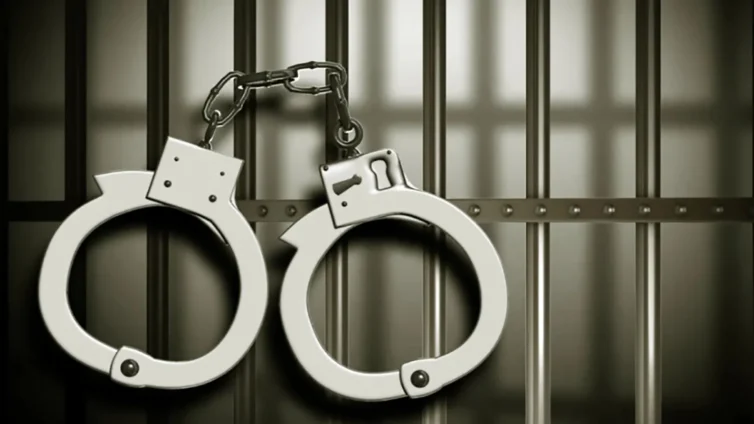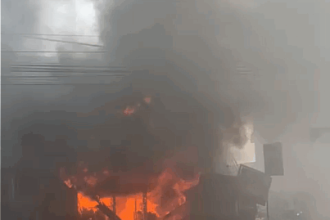Some commercial and private drivers have added their voices to the call by stakeholders to the government to rescind the decision to arm policemen on duty, saying the presence of gun-wielding policemen on the streets cannot guarantee safety but will rather attract fear and push people into submission.
Instead of arming the police, those drivers have urged the government to rather train the police to be more efficient in the discharge of their duties to attract the respect of the public.
Decision
After the gruesome murder of two unarmed policemen while they were on duty at Buduburam in the Central Region last week, the Interior Minister directed the acting Inspector General of Police (IGP), Mr James Oppong-Boanuh, to immediately provide arms and other protective gear for personnel of the Motor Traffic and Transport Department (MTTD).
Mr Dery, at a durbar of policemen and officers in Sunyani last Tuesday, defended the decision, insisting that “if citizens can license and carry arms, then it is logical for trained policemen to carry arms to protect themselves”.
The directive has been met with mixed reactions from security experts and other stakeholders.
Most people have criticised the decision, saying it is a dangerous policy, but there are a few who agree with it but have also stressed the need for the police to be retrained.
When their opinions were sought on the issue, many drivers, most of whom deal more with the police MTTD, told the Daily Graphic that the decision would be risky and might not yield the desired result.
Rather, they called for a more effective approach from the police, as well as better collaboration among policemen.
Commercial drivers
A commercial driver, John Kweku Atipo, said although the government’s directive was a good call to ensure the safety of policemen, he was worried about the likely abuse of the arms by the MTTD personnel.
He explained that his interactions with some policemen over the years indicated that majority of them would act on impulse when armed.
“However, if the directive is carried through, those equipped should be trained properly on how to use the arms,” he said.
Another commercial driver, Mr Peter Tei, also disagreed with arming personnel of the MTTD and rather urged the police to be alert at all times to protect themselves when the need arose.
“They should also call for reinforcement in an effort to protect their lives,” he said.
He also pleaded with the police not to take offence whenever drivers asked for clarification, saying that would ensure a more cordial police-citizens relationship.
Yet another driver, Mr Peter Odum, suggested that the police should be trained on the use of technology, such as recording an incident they could not control.
Nii Anum Adjei expressed worry that the presence of policemen with guns on the roads could be very intimidating and push drivers into submission.
“It is not part of our culture to see policemen with guns every day. If care is not taken, people will be forced to admit to wrongdoing even if they have not committed any offence, for fear of being shot,” he argued.
Private drivers
A private driver, Mr George Afful, suggested that instead of arming every MTTD person, they
should rather be provided with bullet-proof vests, particularly those operating along highly dangerous routes.
“It is true that the work of the police is to protect lives, but they need to protect themselves before protecting us,” he said.
Ms Ernestina Appiah supported the decision, as she believed MTTD personnel needed to be armed for their personal protection and safety, as well as that of the citizenry.
She noted that criminals had become very bold now and were taking advantage of the fact that the police were not armed to attack them.
“If care is not taken, the criminals will soon overpower policemen, particularly those with the MTTD. Arming the police will not make them vulnerable, as the situation is now, but rather make them more confident,” she said.
Security experts
A number of other stakeholders with whom the Daily Graphic has spoken agree with the idea that policemen need training and logistics that offer them protection against daring criminals, who are sometimes a threat to the policemen, but they are divided over whether arming policemen is the right approach or not.
While a Ghanaian lecturer in Criminology at the University of Cambridge in the United Kingdom, Dr Justice Tankebe, gave a grim view of the decision, saying it would lead to creating officers who would act on impulse, the Chairman of the National Peace Council, Rev. Professor Emmanuel Asante, who spoke in his personal capacity, said there was nothing wrong with arming MTTD personnel.
The Executive Director of the Centre for Human Security and Peace Building, Mr Adib Sani, who also supports arming MTTD personnel, said that would reduce the vulnerability of those who operated on highly dangerous routes where criminals operated.
Background
In a bid to curb attacks on policemen, resulting in the loss of lives, Mr Dery directed the acting Inspector General of Police (IGP) to immediately provide arms and other protective gear for personnel of the MTTD.
In the last one month, five policemen have lost their lives in the line of duty.
The five included the two who were killed at Buduburam on August 28, 2019 when they were shot as they tried to confront a group of men in an unregistered car and who had earlier refused to stop when they were flagged to stop.
The other three died at a police checkpoint on the Tamale-Kumbungu road in the Northern Region; in Manso Abodom in the Amansie West District in the Ashanti Region and at a bank duty post in Akyem Swedru in the Eastern Region.
















